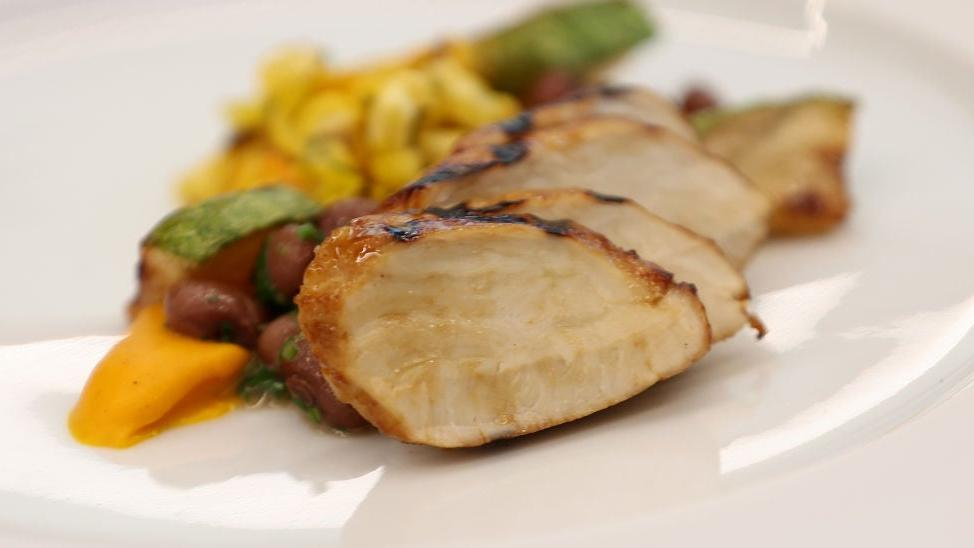Lab-Grown Meat Gains Momentum
Cultured chicken can now be considered halal under certain conditions.
After a year of deliberations, the Islamic Religious Council of Singapore (also known as Majlis Ugama Islam Singapura, or MUIS) has announced that eating lab-grown meat can be considered halal, provided it meets "specific conditions." Singapore was the first nation to approve the sale of so-called cultured meat back in 2020, and with approval from MUIS, it could provide a model for other countries to give the green light, too. With this approval and a lot of interest from venture capitalists, lab-grown meat keeps picking up steam.
Lab-grown meat might not be widely available just yet, but people are already preparing for how it can fit into their diets. So what would make lab-grown meat halal, exactly?
How lab-grown meat can be considered halal
Cultured meat involves harvesting the cells of an animal and growing them in steel vats using a blend of minerals and amino acids to "feed" the cells and spur their growth. MUIS has determined that the initial source of the cells must be a species of animal already deemed halal, and the medium in which the cells are grown must also contain halal components. As long as food safety regulatory agencies approve of the finished product, the lab-grown meat products will then be considered halal.
MUIS isn't the only Islamic group to green-light the consumption of lab-grown meat. Shariah scholars in Saudi Arabia declared that lab-grown meat would be considered halal under the same circumstances last September. This declaration came one week after OU Kosher, a kosher certification agency, decided that cultivated meat manufacturer SuperMeat also manufactured what it considered a kosher product.
After visiting a cultivated meat production facility, MUIS representatives found that the net advantages of the lab-grown material outweighed any potential pitfalls—it cited food security and environmental sustainability issues being key priorities.
Not everything's cemented in place, as MUIS hasn't developed full guidelines on how to certify products as halal just yet. It still needs to work with other groups such as the Singapore Food Agency, which will need to verify the product's food safety standards for the general public.
Lab-grown meat continues to gain steam
Some parts of the world aren't so keen on the whole lab-grown meat concept. Italy has already banned cultivated meat products, despite the fact that they haven't been produced there yet; the move is intended to protect farmers and their agricultural products. Here in the United States, lab-grown meat alternatives have been approved for public consumption. Cultured chicken has even been served at high-end restaurants like Bar Crenn in San Francisco, though as the San Francisco Chronicle reports, that trial run recently came to an end.
The demand for plant-based meat substitutes like Beyond and Impossible appears to have drooped quite a bit, and consumers' appetites for better-tasting meat alternatives have only grown. The willingness to accept lab-grown meat is rising; now it's a matter of whether these companies will be able to scale up to meet demand, and whether they'll be able to sustain our interest.
